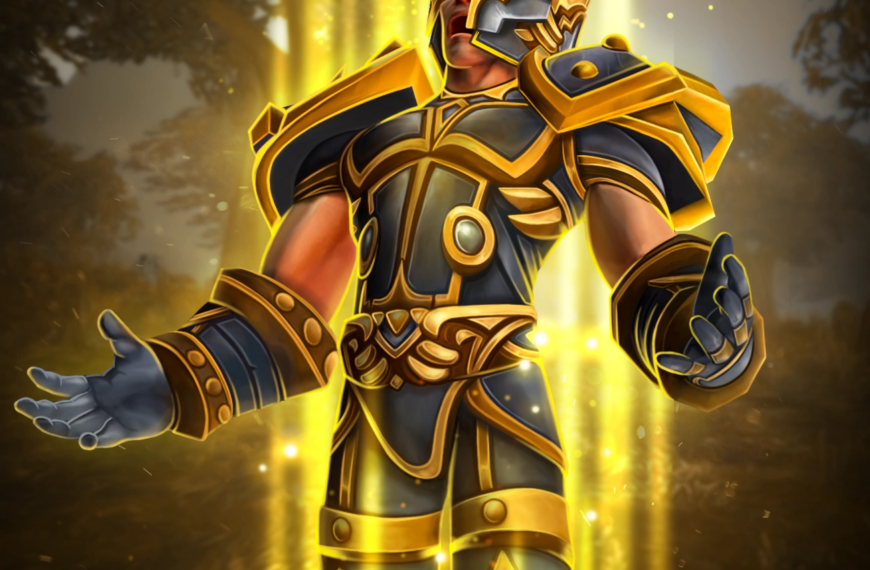In the realm of fantasy literature and gaming, the term “eromancer” has emerged as a captivating concept that blends the elements of romance, magic, and the supernatural. This article explores the various facets of eromancers, their characteristics, and their impact on storytelling and character development.
What is an Eromancer?
The Definition
An eromancer can be described as a practitioner of a specific kind of magic that intertwines eroticism and romance. These characters often wield their powers to influence love and desire, shaping the emotional landscapes of themselves and others. Eromancers can be found in various narratives, from fantasy novels to role-playing games, each embodying unique traits and abilities.
Historical Context
The roots of eromancers can be traced back to mythological figures who wielded love and seduction as tools for influence. Figures such as Eros from Greek mythology, who personifies romantic love, and other deities associated with passion and desire serve as precursors to the modern interpretation of eromancers. Over time, as fantasy genres have evolved, these characters have found their place within contemporary storytelling, exploring themes of intimacy, consent, and the power dynamics of relationships.
The Characteristics of Eromancers
Magical Abilities
Eromancers often possess a range of magical abilities that center around attraction and emotional influence. Common powers include:
- Charm Casting: The ability to create an irresistible attraction between individuals.
- Emotion Manipulation: The capacity to amplify or diminish feelings of love, jealousy, or desire.
- Dream Weaving: Crafting seductive dreams that can influence a person’s feelings upon waking.
Personality Traits
Eromancers are typically characterized by certain personality traits that make them compelling figures in narratives:
- Charismatic: They often have a magnetic presence that draws others to them.
- Mysterious: Eromancers may possess a secretive nature, making their true intentions unclear.
- Empathetic: A deep understanding of human emotions is crucial for manipulating feelings effectively.
Moral Ambiguity
One of the fascinating aspects of eromancers is their moral complexity. They often operate in grey areas, using their powers for both benevolent and malevolent purposes. This moral ambiguity can lead to rich storytelling opportunities, allowing for exploration of themes such as consent, manipulation, and the consequences of wielding power over others.

Eromancers in Literature
Classic Literature
In classic literature, characters who embody eromantic qualities can often be found in works that delve into the complexities of love and desire. For instance, Shakespeare’s plays frequently feature characters who use charm and wit to manipulate romantic entanglements. While not explicitly termed “eromancers,” figures like Lysander in “A Midsummer Night’s Dream” showcase the enchanting power of love.
Contemporary Fantasy
In modern fantasy literature, eromancers have gained popularity as authors explore themes of magic and desire more openly. Notable examples include:
- “A Court of Thorns and Roses” by Sarah J. Maas: The protagonist, Feyre, navigates a world where magic and romance intertwine, encountering various characters with eromantic qualities.
- “The Night Circus” by Erin Morgenstern: The intricate relationship between Celia and Marco highlights the blend of magic and romantic tension.
Eromancers in Role-Playing Games
Role-playing games (RPGs) have also embraced the concept of eromancers, providing players with the opportunity to create characters that embody these traits. Systems like Dungeons & Dragons allow for the development of eromancer characters with specific skills and spells designed to charm and manipulate. The freedom of RPGs enables players to explore the dynamics of love and desire in a controlled, imaginative setting.

The Impact of Eromancers on Storytelling
Exploring Themes of Consent
One of the critical discussions surrounding eromancers revolves around the concept of consent. As characters wield powers that can influence feelings and actions, the narratives often probe the ethical implications of their abilities. This exploration invites readers and players to consider the importance of mutual desire in relationships and the potential pitfalls of manipulation.
The Evolution of Romance in Fantasy
Eromancers have played a role in evolving the portrayal of romance in fantasy literature. Traditionally, romance was often idealized, focusing solely on attraction without delving into the complexities of desire. Eromancers, with their magical abilities, challenge these notions, presenting love as a multifaceted experience that encompasses both light and shadow.
Character Development
The inclusion of eromancers in stories often leads to rich character arcs, where individuals grapple with their powers and the responsibilities that come with them. Characters may face dilemmas that force them to confront their motivations, leading to growth and deeper emotional connections with others.
Crafting Eromancers: Tips for Writers
Creating Unique Abilities
When developing an eromancer character, consider their specific magical abilities and how these tie into their personality. Are they a natural seducer, or do they struggle with the consequences of their powers? Creating a unique skill set can add depth and intrigue to your character.
Balancing Power and Vulnerability
To create a well-rounded eromancer, balance their powerful abilities with vulnerabilities. Perhaps they are haunted by past experiences where their powers caused unintended harm, or they might struggle to form genuine connections due to their magical influence.
Exploring Relationships
Delve into the dynamics of relationships involving an eromancer. How do others perceive them? Are they revered, feared, or misunderstood? Exploring the social implications of their abilities can enrich the narrative and provide layers to character interactions.
Conclusion
Eromancers represent a fascinating intersection of magic, romance, and moral complexity in storytelling. As characters who wield the power to influence love and desire, they offer rich opportunities for exploration in literature and gaming. By delving into the ethical implications of their powers, the evolution of romance, and the intricate dynamics of relationships, eromancers challenge us to reflect on the nature of desire and connection in our own lives. Whether as protagonists or antagonists, these characters continue to captivate audiences, making them a unique and enduring element of fantasy narratives.


















